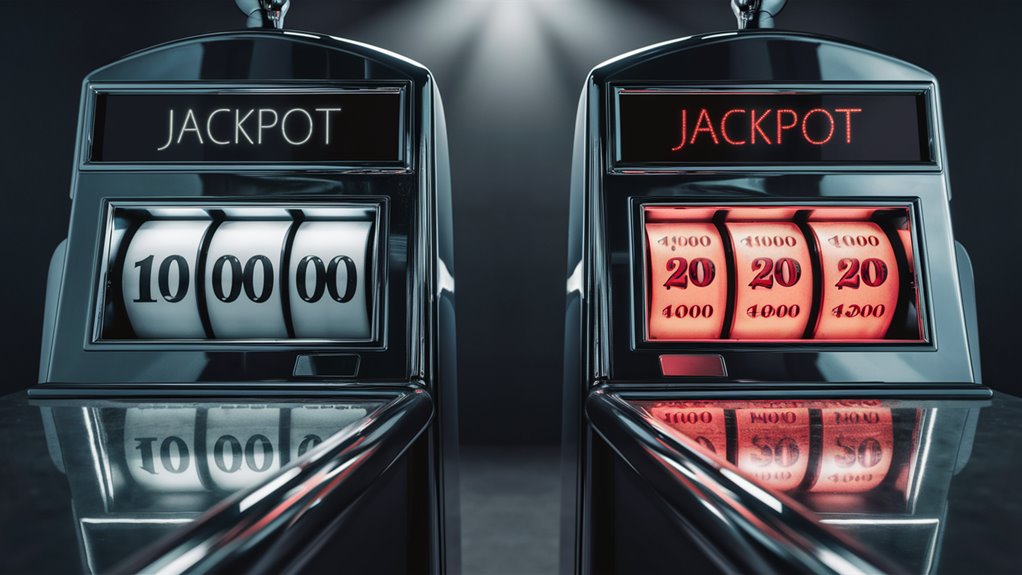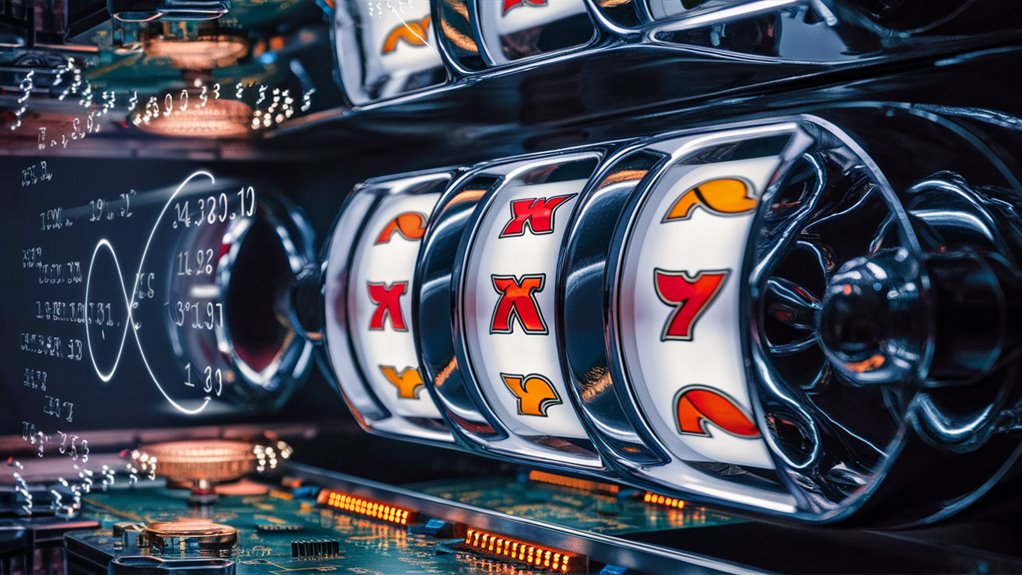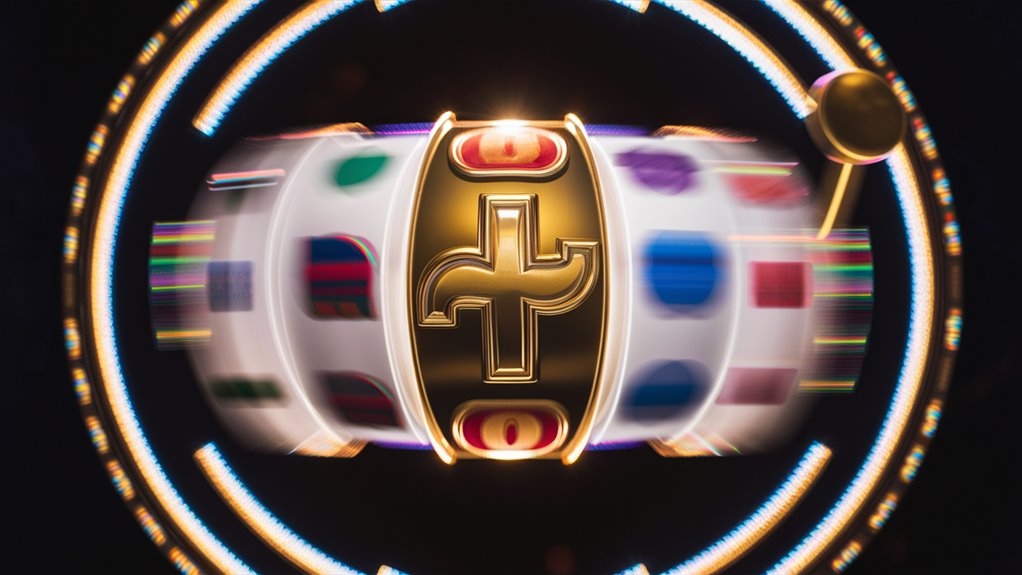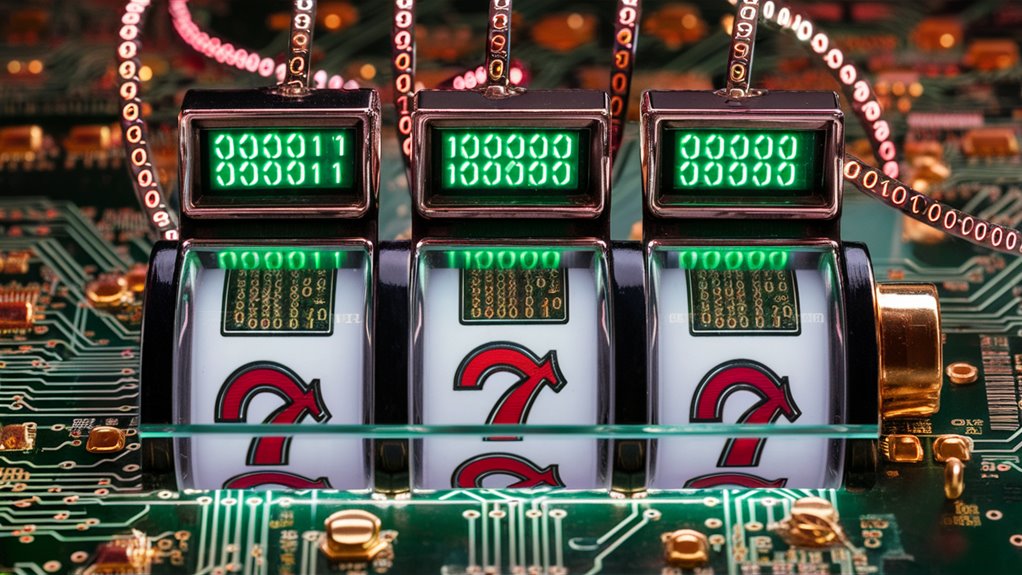Ever wondered what’s really happening behind those flashy online casino jackpots? Well, it’s actually pretty fascinating stuff. Think of it like a high-tech recipe, where computer science meets good old-fashioned probability, with a dash of psychology thrown in for good measure.
You know how your heart races when those slot machine reels start spinning? That’s no accident. These games use some seriously clever math and programming to keep things exciting but fair. It’s kind of like having a super-advanced digital dealer who never gets tired and never makes mistakes.
The whole system runs on something called random number generators 먹튀검증업체 순위 but don’t let that technical term scare you off. Picture a lightning-fast digital dice roll happening thousands of times per second. That’s basically what’s going on every time you hit that spin button. And when it comes to those massive progressive jackpots? They’re like digital piggy banks that grow bigger and bigger as players worldwide chip in with every bet.
The really cool part is how these systems balance randomness with entertainment. Sure, the math needs to be spot-on for fairness, but there’s also this whole psychological side to it. The games need to be fun enough to keep you interested but challenging enough to make winning feel special. It’s pretty much like how your favorite video game keeps you coming back for more, except here you’re playing for real money.
So next time you’re trying your luck online, remember there’s this whole invisible orchestra of algorithms and calculations working behind the scenes. Pretty neat when you think about it, right?
Random Number Generation Explained

Let’s break down how random number generation works in online casinos – it’s actually pretty fascinating stuff!
Ever wonder how these digital games manage to be truly unpredictable? Well, it all comes down to some clever technology called RNG.
Think of RNG as the dealer who never sleeps. It’s constantly churning out thousands of numbers every second, kind of like a super-fast digital dice roll that keeps going non-stop.
These numbers connect to everything you see in the game, from the cards you’re dealt to where those slot machine symbols land.
You know how some people think games have “hot” or “cold” streaks? That’s not how RNG works at all.
Each spin or deal is completely fresh, with no memory of what happened before. It’s like flipping a coin – just because you got heads five times in a row doesn’t mean tails is more likely next time.
The real magic happens through something called Pseudo-Random Number Generators 바카라 중독 방지 팁 or PRNGs.
Now, while they’re not technically 100% random (they use complex math formulas), they might as well be for all practical purposes. Just try predicting what number comes next – it’s like trying to guess exactly how many raindrops will fall in a storm!
Before any casino can use these systems, they need to prove they’re playing fair. Independent labs put the RNG through rigorous testing, kind of like having your car inspected but way more intense.
This means when you’re playing online, you can trust that every game is giving you a fair shot at winning.
Remember, this system moves faster than our brains can process. By the time you’ve even thought about hitting that spin button, the RNG has already generated countless new numbers.
It’s this lightning-fast randomness that keeps online gambling exciting and fair for everyone involved.
Progressive Vs Fixed Jackpot Systems

Let’s break down the two main jackpot systems you’ll find at online casinos. You know how some prizes stay the same while others keep growing? Well, that’s exactly what we’re talking about here.
Fixed jackpots are pretty straightforward. Think of them as a set-in-stone prize that doesn’t change, no matter how many people play the game.
If you’re lucky enough to win, you’ll get exactly what’s advertised, usually somewhere between a few hundred and several thousand dollars. Nice and simple, right?
Now, progressive jackpots are where things get really interesting. These bad boys keep growing as people play, with each bet adding a small chunk to the prize pool.
Some of these jackpots can reach mind-blowing amounts, we’re talking millions of dollars. The catch? The regular payouts tend to be a bit lower to make room for those massive potential wins.
Want to get a bit more technical? Progressive jackpots come in three flavors. You’ve got standalone progressives, which live on just one machine, kind of like a lone wolf.
Then there are local progressives, where machines within the same casino team up. Finally, there are wide-area progressives, which connect across multiple casinos, creating those jaw-dropping prize pools you might’ve heard about.
So, what’s better? Well, it really depends on what you’re after. If you like knowing exactly what you could win, fixed jackpots are your friend.
But if you’re dreaming big and don’t mind longer odds, those progressive jackpots might be more your speed. After all, who hasn’t daydreamed about hitting that life-changing multimillion-dollar win?
Mathematics of Win Probability

Ever wonder what’s really going on behind the scenes when you hit that spin button? Let’s break down the math that determines your chances of winning big at slots. You know, it’s actually pretty fascinating stuff once you get into it.
Think of slot machines as incredibly complex probability machines. They use something called Random Number Generators (RNGs), which are like digital dice rolls happening thousands of times per second. Pretty cool, right?
But here’s where it gets interesting: your actual chances of winning depend on a few key numbers.
First up is the Return to Player percentage, or RTP as players like to call it. Most online slots give back between 92% and 98% of what’s put in.
But here’s the thing about jackpot games, they usually offer slightly lower RTPs because, well, someone’s got to fund those massive prize pools.
Let me paint you a picture of how the odds work. Imagine you’re playing a typical 5-reel slot with 20 symbols on each reel.
If you need specific symbols to line up perfectly, you’re looking at odds of about 1 in 3.2 million. That’s like trying to find one specific grain of sand on a small beach!
The casino needs to make money too, which is why jackpot games typically have a higher house edge than regular slots.
And those progressive jackpots? They’re even trickier to hit because their prize pools keep growing bigger and bigger. It’s kind of like playing the lottery, but with flashing lights and fun sound effects.
Player Psychology in Game Design

Let’s talk about how game designers tap into our minds to create experiences that keep us glued to the screen. You know how sometimes you just can’t put that controller down? Well, there’s actually some fascinating psychology behind that.
Think about those moments in games when you almost hit the jackpot, but not quite. Game designers cleverly place winning symbols just out of reach, and suddenly the screen lights up with flashy animations and exciting sounds.
It’s like they’re saying, “So close! Maybe next time!” And just like that, you’re hooked.
The real magic happens in how these games handle rewards. It’s a bit like getting surprise gifts, but with a twist.
You never quite know when the next win is coming, which keeps your brain pumping out dopamine, that feel-good chemical that makes us want more.
Sometimes you’ll even feel like you’re winning when you’re actually losing, thanks to celebrations that kick in even for tiny prizes.
Want to know what makes it even more compelling? Those social features that show other players winning big or jackpot numbers climbing higher and higher.
It’s pretty hard to resist when you see someone else hitting it big, right? And then there are those clever progression systems, where you unlock new stuff the more you play.
Before you know it, you’re thinking, “Just one more level” or “Let me just unlock that next feature.” It’s like trying to walk away from a really good book right before the final chapter.
These techniques play right into our natural desire to achieve goals and complete tasks. Game designers understand this perfectly, creating systems that make walking away feel like leaving a puzzle half-finished.
Payment Algorithms and Return Rates

Let’s talk about how slot machines actually decide when and how much to pay out. You know those complex algorithms running behind the scenes? They’re pretty fascinating when you break them down.
At their heart, these games use something called Random Number Generators (RNGs) to keep things fair while making sure the house maintains its edge.
Ever wonder what your actual chances of winning are? Well, most online slots give back between 92% and 98% of what players put in – we call this the Return to Player rate, or RTP.
So if players collectively bet $100, they’ll typically get back $92 to $98 over time. Not too shabby, right?
The whole system works like a well-oiled machine, crunching numbers through probability calculations that look at everything from symbol matches to payline combinations.
Think of it as a super-smart calculator that keeps track of your gaming session while making sure wins pop up randomly but still stick to those RTP numbers.
And when it comes to those massive jackpots? They’re carefully timed too, triggering either at random moments or when you hit specific symbol combinations.
It’s kind of like a balancing act, really. The payment system tries to keep you interested with frequent small wins while dangling the possibility of bigger payouts.
Some slots are designed to give you steady, smaller wins, while others might make you wait longer but reward you with bigger prizes.
This way, casinos can stay profitable while giving players like you an entertaining ride. Pretty clever when you think about it!
Triggering Mechanisms Behind Prize Pools

Let’s break down how prize pools actually get triggered – it’s pretty fascinating stuff once you understand the basics. There are three main ways these prizes get activated, and each one works a bit differently.
First up, you’ve got your fixed probability events. Think of these like rolling dice – every time you play, your chances stay exactly the same.
You’ll see this in classic slot machines, where hitting those special symbols triggers the big win. Pretty straightforward, right?
Now, progressive accumulation is where things get interesting. You know how sometimes bigger jackpots seem to pay out more often?
Well, there’s actually a clever math formula working behind the scenes. As more people play and the prize pool grows, your odds of winning gradually improve. It’s like the game is building up pressure until someone has to win.
The third type, network-linked triggers, connects players across different games or even different casinos. Picture a massive web of players all contributing to the same prize pool.
These systems might wait for a certain amount of total bets or specific timing before releasing the win. They use special random number generators to keep things fair, but with a slight edge for the house – after all, casinos need to keep the lights on too!
Different casinos and regions handle these triggers in their own ways, but they’re all trying to find that sweet spot between keeping players excited and making sure the prizes stay sustainable.
It’s kind of like a carefully balanced scale, with player excitement on one side and responsible payout rates on the other.
Regulatory Standards for Jackpot Fairness

Let’s dive into how regulatory bodies keep online casino jackpots fair and square. You know how people sometimes worry about whether online gambling is rigged? Well, there are actually three main rules that casinos have to follow to keep everything above board.
First up is the whole transparency thing. Online casinos can’t just keep their cards close to their chest (pun intended).
They need to spell out exactly how their jackpots work, what your chances of winning are, and how you’ll get paid if you hit the big one. Ever wondered what that RTP percentage means?
They’ve got to explain that too, along with all the nitty-gritty details about progressive jackpots.
Then there’s the randomness factor. Think of it like having a referee watching over every game. Independent testing labs check that those Random Number Generators aren’t playing favorites.
They regularly run the numbers and do some pretty intense math to make sure everyone’s got a fair shot at winning.
The third rule is all about keeping the money safe. It’s kind of like having separate piggy banks – casinos can’t mix jackpot money with their everyday cash.
So if you land that life-changing win, you can rest easy knowing your money is actually there waiting for you.
Playing at a regulated casino comes with some extra safety nets too. They’ll cap how much you can bet and make sure you take breaks now and then.
Plus, they’ve got tech wizards making sure computer glitches don’t mess with your chances of winning. All these rules work together like pieces of a puzzle, keeping things fair in the wild world of online gambling.
Common Questions
Can Jackpot Winners Remain Anonymous When Claiming Their Online Casino Prizes?
Let’s talk about winning big at online casinos and the burning question of anonymity. You know how it goes – you hit that amazing jackpot, and suddenly you’re wondering if everyone needs to know about your lucky break.
Well, the reality is that it depends on where you’re playing and which casino you’ve chosen. Some online gambling sites are pretty flexible and let you keep things under wraps, while others have strict rules about revealing your identity. It’s kind of like how some countries let lottery winners stay anonymous while others put them right in the spotlight.
Most reputable online casinos need at least some basic information from you when you win big. Think about it – they have to follow tax laws and make sure everything’s above board. But here’s the good news: just because they need your details doesn’t mean they’ll broadcast them to the world.
If privacy is super important to you, take a few minutes to check out the casino’s policy before you start playing. Look for their terms and conditions about prize claims, or better yet, reach out to their customer service team and ask directly. That way, you won’t be caught off guard if you land that life-changing win.
How Do Casinos Verify a Player’s Location During a Jackpot Win?
Ever wondered how casinos keep track of where you’re playing from when you hit that big win? Well, it’s actually pretty interesting. Think of it like layers of security checking – kind of like when you’re ordering food delivery and the app wants to know exactly where to find you.
First up, casinos use your IP address, which is basically your device’s digital fingerprint. But they don’t stop there. Just like your phone knows when you’re near your favorite coffee shop, casinos tap into GPS services to pinpoint your location. Pretty smart, right?
They also use something called Wi-Fi triangulation, which sounds complicated but it’s similar to how your phone finds the nearest cell tower. The casino’s systems can figure out where you are based on nearby Wi-Fi signals.
The really thorough part? They’ve got special geolocation software working behind the scenes. It’s like having a digital detective making sure everything checks out. And just to be extra certain, they’ll look at your device’s data too.
Sometimes they might ask you to prove where you live, kind of like when you’re opening a new bank account. You know, the usual stuff – utility bills, ID, that sort of thing. It might seem like overkill, but hey, they need to make sure everything’s legit when you’re claiming that jackpot!
What Happens if Internet Connection Drops During a Jackpot-Winning Spin?
Let’s be honest – losing internet connection during a potentially life-changing casino spin can be nerve-wracking. But here’s some good news that might put your mind at ease: your spin results are actually locked in before they even show up on your screen.
You see, when you hit that spin button, the outcome is instantly recorded on the casino’s secure servers. Think of it like sending a text message – even if your phone dies right after hitting send, that message still reached its destination. The same applies here. Your winning combination is safely stored, regardless of what happens to your connection.
So if your internet drops right as those reels are spinning, take a deep breath. Once you get back online and reconnect to the game, you’ll see exactly what fate had in store for you. And if you did hit that jackpot? Well, it’s already yours, technical difficulties or not.
Just remember to get back into the same game session once your connection is restored. The casino’s system will automatically pick up where you left off, showing you that sweet, sweet winning combination you’ve been dreaming about.
Are Jackpot Wins Taxable in Different Countries?
Ever wondered how different countries handle those lucky casino wins when tax season rolls around? Well, it’s quite interesting how the rules vary across the globe. In the United States, you’ll need to set aside a pretty hefty chunk of your winnings, somewhere between 25% to 30% for Uncle Sam. Japan and Spain keep things a bit simpler, with both countries taking a flat 20% of your jackpot earnings.
But here’s where it gets interesting – if you happen to hit the big time in the UK or Canada, you’re in luck! These countries actually let you keep every penny of your gambling winnings. That’s right, not a single cent goes to the tax authorities. So, if you’re planning your next casino adventure, knowing these tax differences might just influence where you choose to try your luck!
Can Players Increase Jackpot Odds by Betting at Specific Times?
Let’s talk about a common myth in the gambling world: timing your bets to win the jackpot. You might think there’s a secret pattern or a magic hour when slots are more likely to pay out, but here’s the real scoop.
The truth is, you can’t boost your chances of hitting the jackpot by playing at specific times. Online casinos use sophisticated random number generators, or RNGs for short, that are constantly churning out numbers. Think of it like a super-fast digital dice roll that never stops, not even for a split second.
Every single spin is its own unique event, completely separate from what happened before or what might happen next. It’s kind of like flipping a coin – just because you got heads five times in a row doesn’t mean you’re more or less likely to get tails on the next flip.
So whether you’re playing at midnight, during your lunch break, or first thing in the morning, your odds stay exactly the same. The RNG doesn’t care what time it is, who’s playing, or how many games have been played before. It just keeps generating those random numbers, making each spin fair and unpredictable.